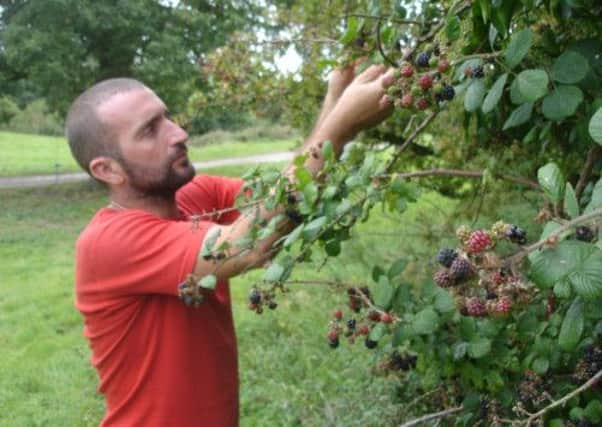Life-for-free guru saving the planet by not spending a penny


He passes on their tips in The Moneyless Manifesto – a follow-up to The Moneyless Man, recording two years he spent foraging from a caravan in Somerset.
Boyle is not just another hack trying self-denial as an angle. He really believes there is a better world waiting on the other side of economic collapse.
Advertisement
Hide AdAdvertisement
Hide AdHe is a back-to-peasantry guru who even has his doubts about the factory-made bicycle, because it takes global trading to make one.
He adds that a lot of Grand Designs-style self-sufficiency is a fraud because it is about taking houses “off-grid” by using expensively manufactured materials.
The Moneyless Manifesto pins down exactly where the dividing line is between good and bad.
“Without money, nobody from Italy is going to spend all day producing beans for the south-west of England, in the trust that they’re producing cider to be shipped to Rome. Without money, the maximum scale we could reach is one where real relationships based on trust were possible, most likely a village with a population of approximately 150 people or fewer.”
Advertisement
Hide AdAdvertisement
Hide AdBut there are also a lot of practical suggestions for reducing your environmental footprint – or keeping your wallet closed, if that is more your angle.
When he was just trying to live for nothing, Boyle spent two years getting a flame off lighters he found outside pubs on Sunday mornings.
Now he has graduated to the bow-and-drill method made famous in Coral Island, by R.M. Ballantyne. It means, he says, first that he is not supporting “an industrialised system that is killing the planet”; second, that he always has to keep one eye on the weather and the other open for kindling; third, that it is a handy skill for after the apocalypse.
He devotes a lot of space on how to get things free – by using online swapping communities like Freecycle, for example. As a means of rationing your use of paper and pens, he recommends making your own out of saddle fungus, inkcap mushrooms and a wing feather.
Advertisement
Hide AdAdvertisement
Hide AdDisposable nappies are out, of course. And even washable ones are a problem unless you make your hot water using a black plastic bag. Boyle (childless) is surprised more parents do not try Elimination Communication, a toilet training technique based on what probably used to happen when we all had earth floors.
His mate Dave Hamilton, author of Grow Your Food For Free, says prisoners in Guantanamo Bay made their own vegetable patch with the seeds from their lunches and plastic spoons.
He adds that you can build compost bins, fencing, planters and sheds, with little more than discarded pallets.
Boyle recommends Wwoof websites (World Wide Opportunities on Organic Farms) as a way to see the world and get bed and board for an average 25 hours work a week.
Advertisement
Hide AdAdvertisement
Hide AdHe also explains how to put the arm on your local council to turn wasteland into allotments.
For the real fundamentalists, he calls in Fergus Drennan, who has spent a lot of time living off “leaf curd and roadkill”. Leaf curd is protein extracted from the likes of wild garlic, ground elder, stinging nettles and lawn cuttings. A liquidiser powered by a bicycle is helpful but not essential, apparently.
For those who think cabbage and apples are going far enough, Boyle spends a chapter on making your own pesticides and another on “forest gardening”, meaning growing on various levels.
He wrote most of the book while house-sitting … “spent two months looking after one large house where all I had to do was feed a gorgeous cat called Treacle twice a day.”
Advertisement
Hide AdAdvertisement
Hide AdIt probably bears repeating, as Boyle does, that there is a spinning wheel in the Indian flag to commemorate the self-sufficiency revolution led by Gandhi, who said his people had to break the habit of buying Lancashire cloth if they wanted independence.
Boyle comments: “If I were to create a flag for the planet, it would have a compost toilet on it.” And that, of course, is a whole other chapter.
In his section on transport, Boyle mentions that if you do allow yourself a bike, he recommends puncture-proof tyres, made of recycled plastic and micro-pockets of air, as commonly used in the Netherlands.
“They’re not quite as comfortable as normal tyres, but you get used to them .”
The Moneyless Manifesto is fittingly free – although you are asked for a donation to The Revolution on your way to it via www.moneylessmanifesto.org/.